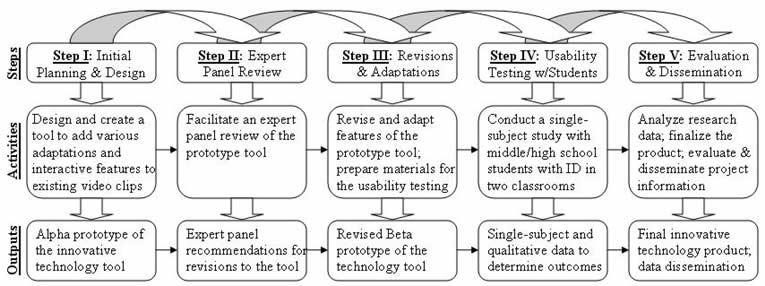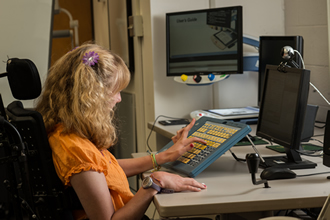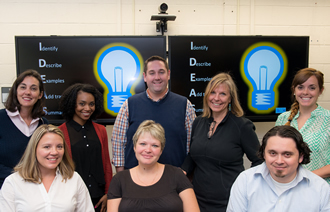About ACTIV Project
ADAPTED CAPTIONS THROUGH INTERACTIVE VIDEO (ACTIV) PROJECT

ACTIV project is funded through the Phase I Steppingstones of Technology Innovation for Students with Disabilities grant from the U.S. Department of Education, Office of Special Education and Rehabilitative Services (84.327A) titled " Development and Usability Testing of Adapted and Interactive Video Interventions for Students with Intellectual Disabilities" in the amount of $400,000 over two years.
Project Purpose: ACTIV project is aimed to develop, refine, and test the feasibility of an innovative technology-based approach enforcing the principles of universal design for learning that enables access and participation of students with various disabilities in appropriate challenging academic curriculum. This technology will allow enhancing existing content-based videos in any subject area with adapted and interactive features such as regular text, highlighted text, and/or picture-symbol captioning; verbal and visual cuing; interactive hyperlinks in order to search the video for answers; and built-in testing activities in various formats (see screen shots below).
Project Phases: Iterative developmental process of the innovative video-based prototype tool for middle and high school students with intellectual disabilities enhanced with formative evaluation and feasibility testing will include the following 5 steps:

Anticipated Outcomes: The project will ultimately result in universally designed technology-based instructional materials that will support improvements in academic outcomes of students identified with intellectual disabilities. Anticipated outcomes include: (1) key features for the adapted and interactive videos having potential to improve educational results of students with intellectual disabilities; (2) the iterative product development process as reflected in the Alpha and Beta prototypes, as well as the final technology innovation; (3) utilization of original and adapted interactive videos across subject areas by middle and high school students with intellectual disabilities; (4) the results of expert panel review and usability testing incorporating single-subject and qualitative data; (5) completion of the final technology-based product for video enhancement; (6) published reports and national, state, and local presentations on the process and product of the proposed development project; and (7) recommendations for further development and research of the effectiveness of the innovative technology-based approach.
For more information please contact Anna Evmenova aevmenov@gmu.edu





